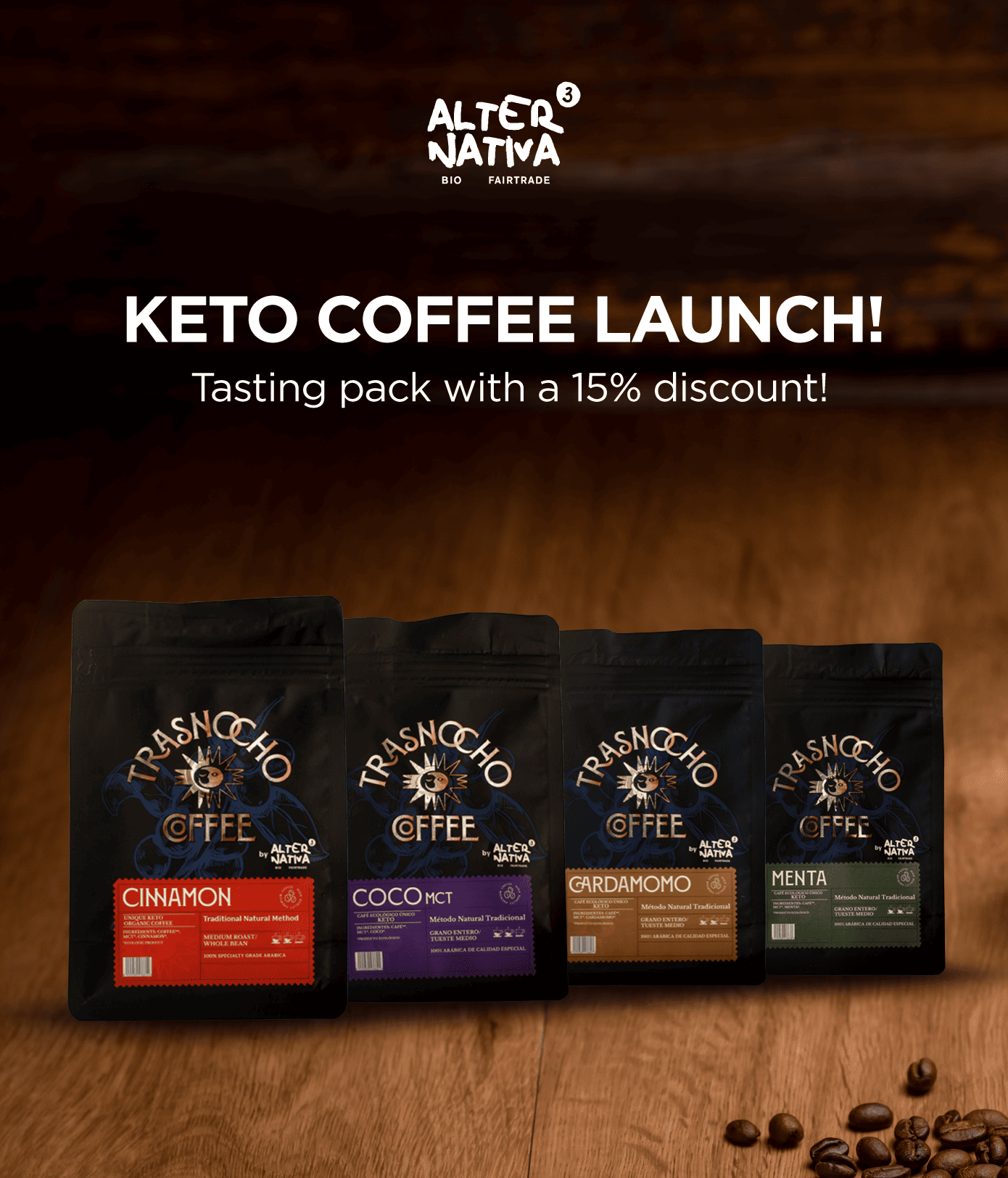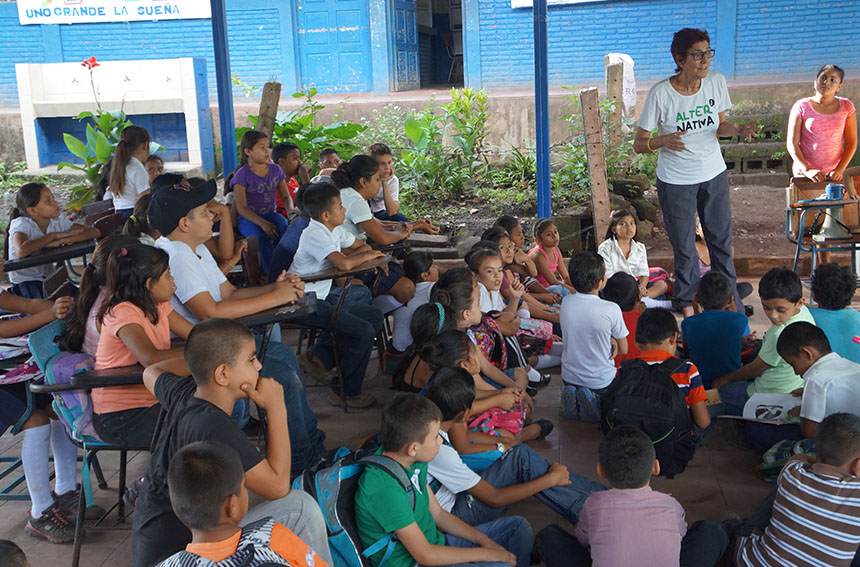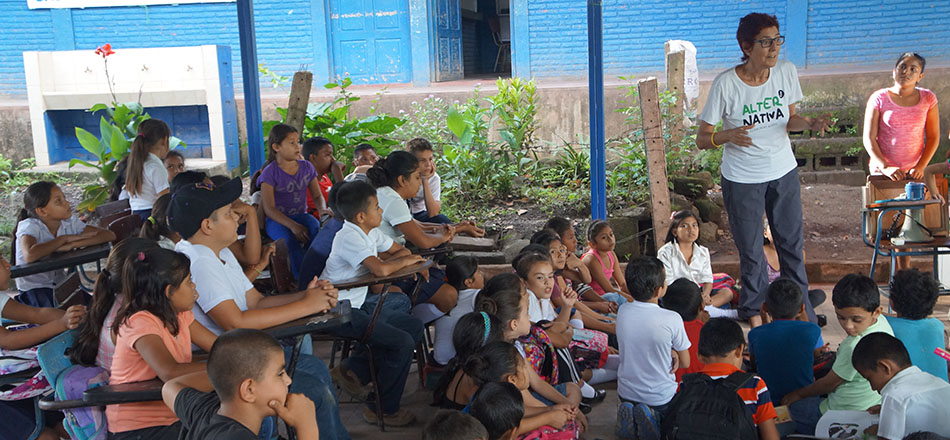REPORT
To inform, sensitise and raise awareness of Fair Trade and Solidarity among the Catalan population as a whole.
SUPPORT
To support initiatives of communities in different countries of the so-called third world that, being legally constituted, can organise themselves and export their products through the Fair and Solidarity Trade network.
NEW PROJECTS
To support already established Producer Organisations in the development of new marketing projects and in the improvement of those already in operation.
FAIR TRADE
To support Fair Trade and Solidarity organisations in their marketing work and in the dissemination of their activities.
COOPERATION PROJECTS
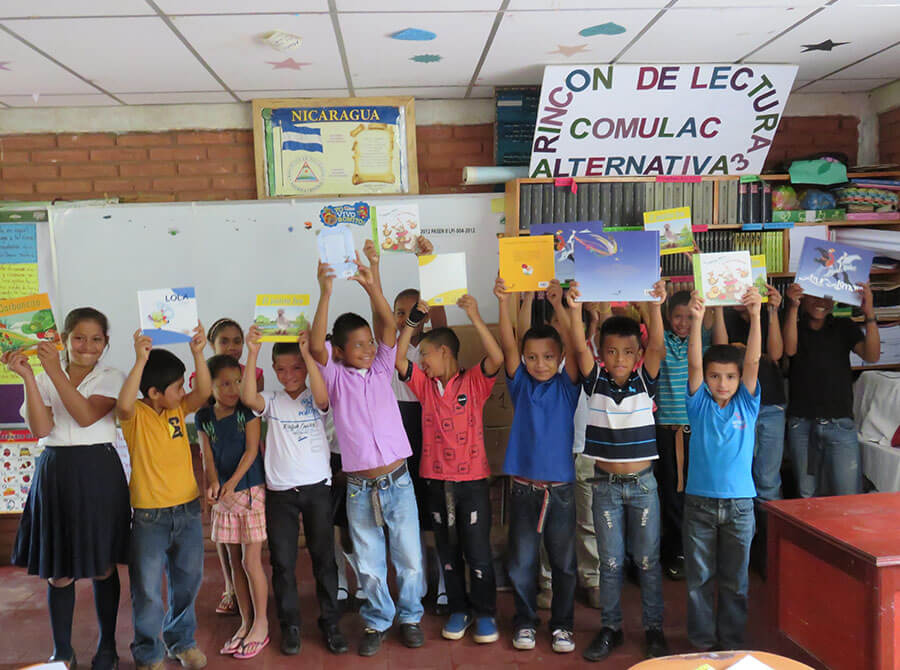
El Tuma La Dalia (Matagalpa- NICARAGUA)
Educational
2015-2016
The creation of different reading points and the provision of the necessary materials for their operation. Among them, 9 rural schools with scarce resources have been provided with books and school materials, a reading point has been set up at the COMULACS cooperative headquarters, and a public library has been created in El Tuma.
COOPERATIVA AUGUSTO CESAR SANDINO (COMULACS), AND CECOCAFEN.
FUNDACIÓN LOGÍSTICA JUSTA, MUNICIPALIDAD EL TUMA LA DALIA, EL CIRCULO DE LECTORES, FUNDACIÓN CARES.
Terrassa City Council Alternativa3 NGO has been carrying out this project since 2009. It consists of providing grants to young people, 50% men and 50% women, from the rural communities of El Tuma- La Dalia (North of Nicaragua), to increase the literacy of the communities and to ensure that, in the future, thanks to this training, there will be technical workers in productive, educational and cultural activities. Nicaragua is the second poorest country in Latin America and one of the most food insecure countries in the world. According to the UNDP's 2011 HDI data, 46.2% of the population lives in conditions of poverty, 11.2% live in extreme poverty, a percentage that increases in rural areas. The problems that this programme seeks to solve are:
- 9 rural schools with limited resources.
- We have created a public library in El Tuma, with the collaboration of the local NGO "books for children", with an agreement with the Municipality of El Tuma la Dalia to maintain a person hired to provide a full time service to the children.
- A reading corner in the Augusto Cesar Sandino cooperative and the Benjamín Zeledón Secondary School, with more university and technical books. These two corners are strategically located to link different rural areas.
The Logística Justa Foundation, together with the Círculo de Lectores, donated more than 3,000 books, but the project also included the purchase of Nicaraguan culture and reference books, such as encyclopaedias, technical books on agronomy, industrial mechanics and animal nutrition, among others. In addition, rural schools have been provided with school materials, and all of this has encouraged the habit of reading and motivation to study.
This project has led to a reading competition in the community, and a lot of interest from public institutions because of the good results obtained and the motivation and community strengthening it has generated.
This project included workshops on the good use of reading and gender equality, which were given by former graduates, strengthening the professional generational relay and giving an example to the younger ones of the options offered by study.
Education, access to culture, study grants and the improvement of educational conditions are all part of a process of improving the quality of life of the communities, always with a vision of gender equality to help improve the empowerment of women.
The school year begins in February and ends in November.
The number of scholarship holders to date.
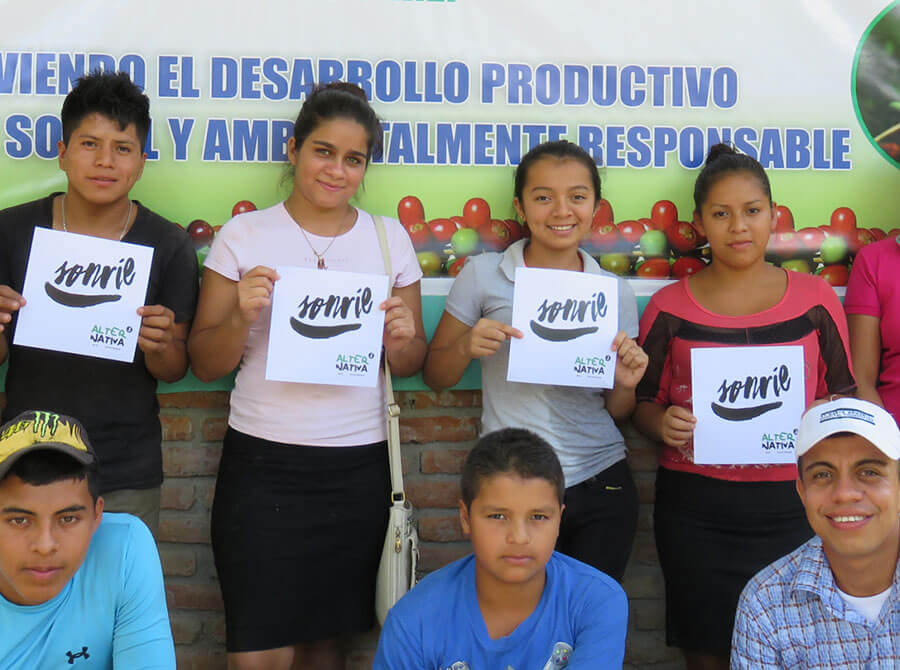
El Tuma La Dalia (Matagalpa- NICARAGUA)
Educational
2010-present
The provision of scholarships for technical, secondary and university studies. Increasing literacy in the communities so that in the future, thanks to this training, there will be technical workers in productive, educational and cultural activities, which will help to improve their quality of life, in an autonomous manner, and at the same time promote generational change and reduce emigration.
COOPERATIVA AUGUSTO CESAR SANDINO (COMULACS), AND CECOCAFEN.
BON PREU SUPERMARKETS (FROM 2009-2011), CROWFUNDING.
Terrassa City Council.
Alternativa3 ngo has been carrying out this project since 2009, which consists of providing scholarships to young people, 50% men and 50% women, from the rural communities of El Tuma-La Dalia (North of Nicaragua), to increase literacy in the communities and to ensure that in the future, thanks to this training, there will be technical workers in productive, educational and cultural activities.
Nicaragua is the second poorest country in Latin America and one of the most food insecure countries in the world. According to the UNDP HDI 2011 data, 46.2% of the population lives in poverty, 11.2% lives in extreme poverty, a percentage that increases in rural areas.
The problems that this programme seeks to solve are:
- Technical and secondary schools for young people over the age of 18 operate on a distance or meeting basis. They are located in towns or cities. Students have to pay fees, transport and meals. The children of the producers are not able to pay the full cost.
- There is a high rate of illiteracy among adult cooperative members, and there is a risk that their children, who have only primary schooling, will join them.
- Many of the children drop out of secondary school, technical and university courses due to lack of resources.
CECOCAFEN's BECAS programme was born as a result of a diagnosis carried out on the educational levels in the area. The result indicated that the average level of schooling is second grade of primary school for 60% of those surveyed, and the remaining 40% could neither read nor write. It concluded with a negative development index.
For scholarships, the following will be considered:
- The economic situation of the family.
- The number of children studying in the family.
- Scholarship one student per family per year.
- The geographical location of the pupil.
- Academic performance history is taken into account
The scholarships are for secondary school, technical studies and university studies. The amount covers the costs of transport, school materials, food and the cost of transport.
- University students: 250€.
- Technical level: 150€.
- Secondary: €100
Acceptance of the scholarship means that the scholarship holder will do 100% of work in the community, which they can choose where they do it (collaboration in community literacy, organisation of events, collaborating in the cooperative...). The aim of this is to foster a sense of belonging to the community, and to encourage generational change rather than emigration once they have finished their studies. The results are already evident, with farmers trained in agronomy, public personnel with studies working on social issues...
The school year starts in February and ends in November.
Number of scholarship holders to date.
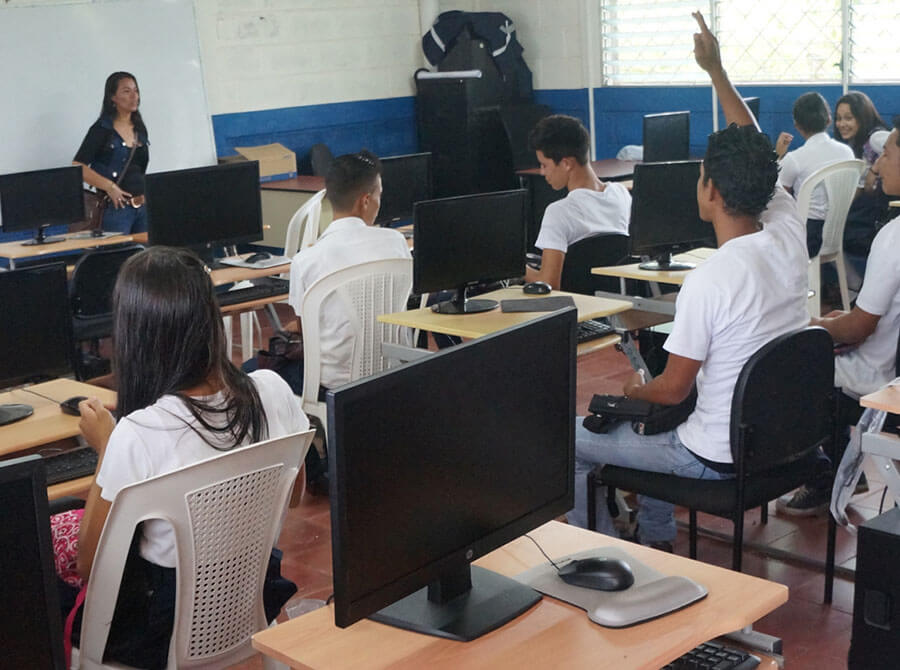
El Tuma La Dalia (Matagalpa - NICARAGUA).
Educational
2012 – 2015
The creation of a computer classroom to give young people in the community access to new technologies.
COOPERATIVA AUGUSTO CESAR SANDINO (COMULACS), AND CECOCAFEN.
INATEC (National Institute that regulates technology studies), MINED (Ministry of Education), Municipality El Tuma La Dalia.
Terrassa City Council.
During the follow-up visit of the scholarship project, the young people asked us for a computer classroom, in order to be trained in new technologies and to have better access to the world of work. The total lack of knowledge in the use of computers limited their access to jobs, as well as their access to certain university studies.
In 2012 we started the project, initially with a rented room, and then the municipality gave us a classroom in the Tuma educational centre, a central location to provide good access to the young people. The photocopier could not be installed in this room, as the electrical system was very unstable. The idea of the photocopier was to be able to provide a service to raise money for the maintenance of the computer room.
At the end of 2013, an agreement was reached with the Municipality of El Tuma La Dalia to work together with the local organisation COMULACS and CECOCAFEN in the creation of a commission to study requests for computer courses and to provide a classroom in the Benajmin Zeledon secondary school, where the computer classroom could be installed. In addition, an agreement was signed with INATEC (National Institute that regulates technology studies) and MINED (Ministry of Education), where they took charge of the teaching staff, extending shifts from 1 to 5, adding English classes and opening a university degree in computer science.
–

Perez Zeledon, Costa Rica.
Educational
2011 – 2012
The creation of a computer room to give children access to new technologies.
COOPEAGRI (COSTA RICA).
–
ACCD and ACJ.
There is a major concern within Coopeagri's analysis related to generational renewal: statistics show a growth in membership, but with an average age of 48 years.
There is also an important problem in Costa Rica and in Pérez Zeledón related to land and its use for agricultural activities. Land that parents give as inheritance to their children is increasingly sold to foreigners who show no interest in continuing agricultural activities.
The mission of the "Leaders of the Future" programme is to train the future heirs of the cooperative: to try to ensure that the new generations see agriculture as a development option for their families.
"Leaders of the Future" is aimed at children aged 0-18 years. Most of them come from rural areas where coffee and sugar cane are produced. These families have agricultural activities as their only source of income, but with a very low production volume, which means that their basic needs are not covered.
The learning methodology is constructivist: children and young people learn cooperativism by participating in a real experience.
They work on values such as: leadership, loyalty, friendship, discipline, entrepreneurship, creativity, self-improvement, integration, love of family, community and nature. They also provide knowledge of social economy, environment, agriculture, languages, computers and art.
As technology and information are nowadays the key tools, "Líderes del Futuro" has included computer science and the Internet as priority topics in its training programmes and the Internet as priority topics. For this reason we have created this project, with the aim of generating a new generation of associates, with a link to the land and agriculture, but equipped with the tools to improve their quality of life.
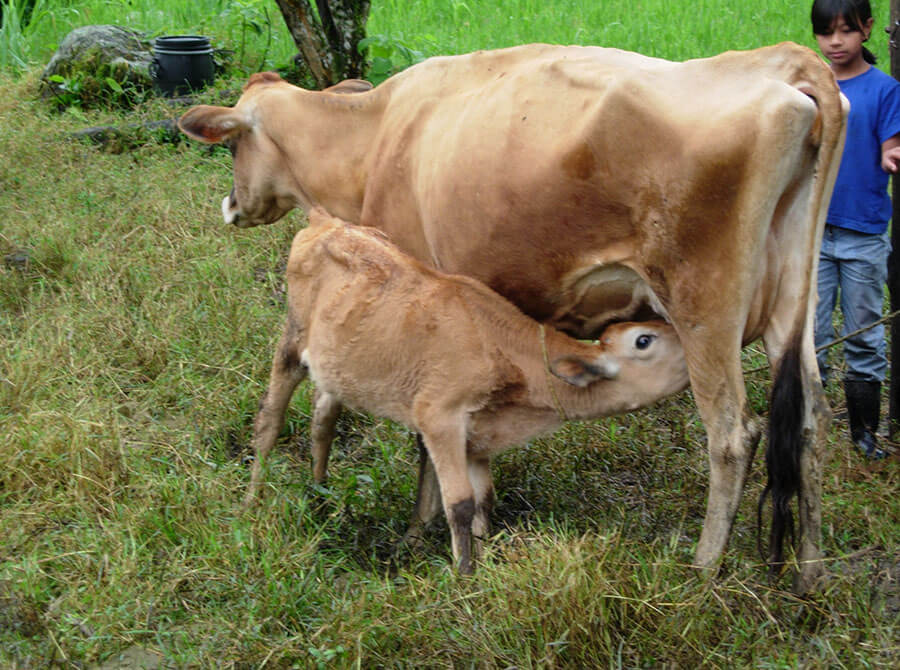
Municipality of Saisama, Colombia.
Rural community development.
–
The aim of the project was to purchase 10 cows to promote rural community development.
Zuá Foundation.
Bon Preu (2010-2013).
Fair trade consumers.
Alternativa3 collaborated with Fundación Zuá to raise the money needed to buy 10 cows for the 'Los Senderos' Rural Study Centre, located in the municipality of Sasaima, Colombia.
There, several families from Fundación Zuá have decided to leave the suburbs of Bogotá and form a self-sustainable rural community. Their livelihood comes entirely from the produce grown on the farm, from incipient livestock activities and from raising chickens and selling them on the local market.
In October 2007, this community had only one cow, Silvana, which did not provide enough milk to feed all the families. Milk is an essential part of their diet, one of their scarce sources of protein. Now everyone can drink milk daily and they have started making yoghurt and cheese.
In addition, they have started to use solid and liquid waste to produce compost and fertilisers, making vermicompost that they use to improve pastures and to fertilise crops.
Our target was to get 10 cows and in January 2013 we achieved it!
In fact, more were obtained, as many bred.
All illustrations in the campaign are by Daniela Violi.
Strengthening the capacities of women and young people at risk of social exclusion for the promotion of empowerment and the improvement of their living conditions.
–
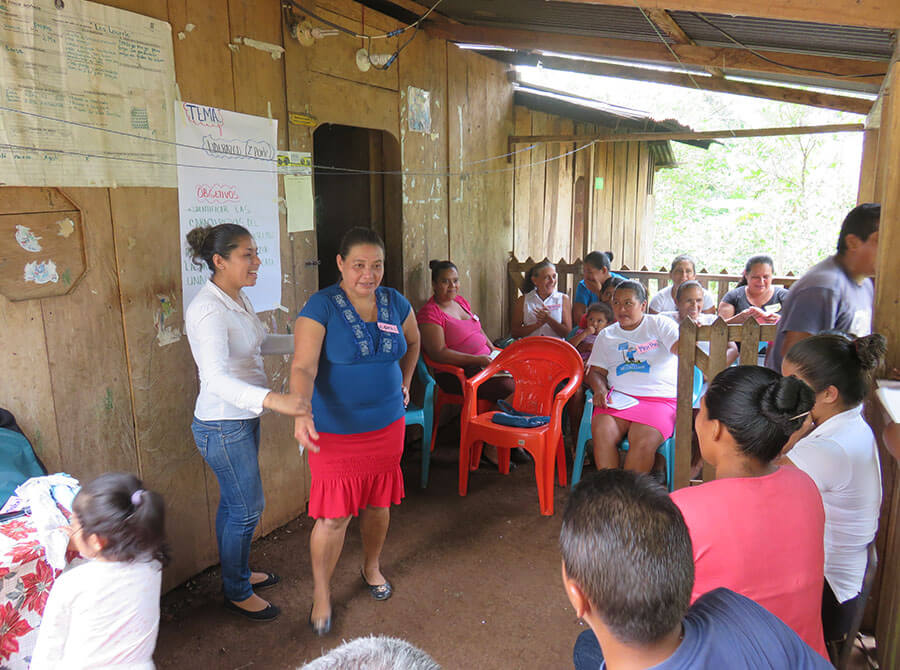
El Guapotal region, municipality of Tuma La Dalia (Nicaragua).
Rural community development.
–
Promoting the empowerment of the women's and young people's collective in the rural community of El Tuma La Dalia.
Augusto Cesar Sandino Cooperative COMULACS.
–
Terrassa City Council.
The project aims to carry out a process of capacity building for members at risk of social exclusion, mainly women and young people, in order to promote their empowerment and contribute to the sustainable human development of the community.
The means to achieve this will be, on the one hand, a series of trainings and trainings that will allow us to increase the future opportunities for this group. In addition, there will be specific training and awareness-raising activities on gender equality, not only for women, but also for men and families.
On the other hand, the project will include a participatory diagnosis, which will be carried out by the beneficiaries themselves, tutored by a technical promoter in gender and participatory methodologies. The objective of this is to analyse their situation, their needs and the best way, within their possibilities, to address them.
With this diagnosis we promote the choice of a local activity that gives excluded groups access to productive resources, fostering economic independence and equal opportunities.
Local bodies support the project and the regional Ministry of Family Economy has provided technical support as well as productive materials for the productive activity to be developed.
Also included in the project is an item to continue providing scholarships for young people in the community.
Project beneficiaries
The training will be offered to women and young people from the 80 families of the Augusto Cesar Sandino Cooperative. The people who will form the training groups will be the same people who will develop the participatory diagnosis.
The Gender Committee of the Augusto Cesar Sandino Cooperative as well as the board of directors of the cooperative have been involved from the beginning.
Sensitisation on gender equality will be given to women, men and youth of the co-operative. The promoters and trainers will carry out these sensitisation activities in the different parts of the community.
–
DEVELOPMENT EDUCATION PROJECTS
Catalonia
Education for development
–
The creation of a computer room to give children access to new technologies.
Setem coordinates the project, and we collaborate with AlterNativa3, Oxfam Intermon, Fiare, Fets, the Xarxa de consum solidari.
TV3, BTV, El Periódico, La Directa and the collaboration of the Coordinadora Estatal de comercio Justo.
Barcelona City Council, Barcelona Provincial Council, Tarragona City Council, Girona City Council, Terrassa City Council and other city councils.
The Fair Trade and Ethical Banking Festival (today We are Fair Trade and Ethical Banking) is an initiative in which everyone can participate and which aims to raise awareness of the proposals of Fair Trade and Ethical Banking in Catalan society, so that citizens can apply these proposals in their daily lives.
The precedents of this activity date back to the year 2000, with the visit of the boat Estelle to Barcelona. The good results of this experience led different Catalan organisations linked to Fair Trade to consider continuing to work on this project. And so it has been until now, each year with better results.
Since 2003, the Fair Trade Festival has ceased to be an activity only in Barcelona and, during its eleventh edition (2010), has reached 94 municipalities in Catalonia. In the Catalan municipalities, a large number of social and solidarity organisations participate, which coordinate with the local councils to make it possible.
This effort to decentralise the festival has been very positively valued, both by the organising bodies in Catalonia and by the local groups and organisations that take part in the festival by organising activities in their own municipality or neighbourhood.
–
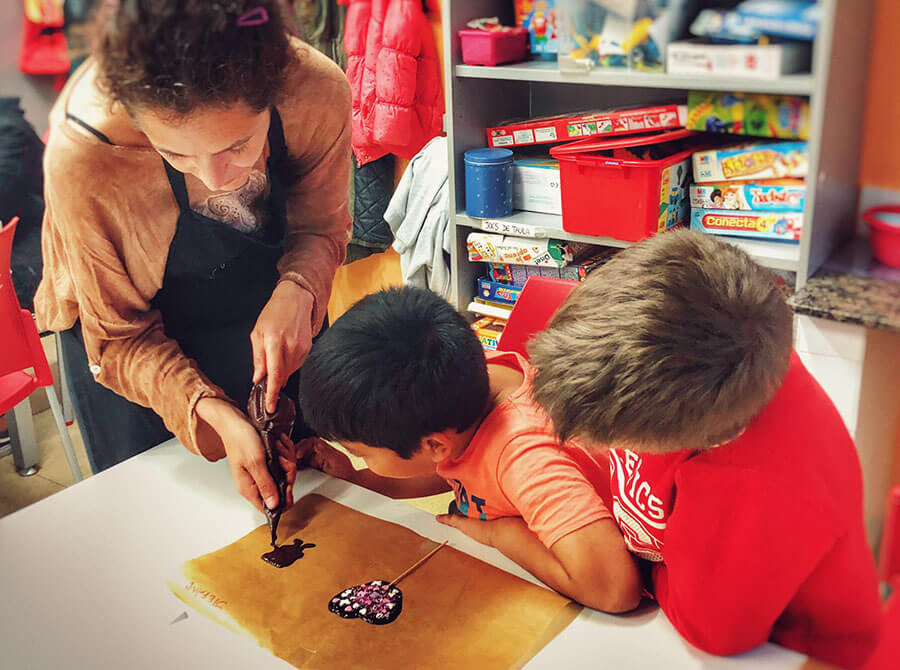
Catalonia
Education for development
2012
The main objective is the introduction of fair trade into the school curriculum.
Tercer Món Mataró Foundation, Josep Maria Cunill Association.
Contes del Mon, Xarxa d'Escoles compromeses, Agenda 21 escolar, Carles Cuberes, Roger Canals, Asociacion del sello de comercio justo.
ACCD.
This project aims to build a network of schools working on Fair Trade in Catalonia. The aim is to raise awareness of the favourable impact that responsible fair trade consumption has for everyone.
The Fair Trade Schools Network is coordinated by Alternativa3 and receives the support of the Catalan Agency for Development Cooperation and the collaboration of the Spanish Fair Trade Labelling Association.
The project offers you:
- A common working framework in which you will feel part of a collective project.
- Support materials with practical guidelines for the implementation of the different actions.
- Work proposals, specific resources and technical support.
- A permanent telephone and telematic information service.
- Regular communication through a fortnightly e-newsletter and the web.
- Courses, exhibitions, seminars and training workshops for teachers, AMPA's, monitors...
- Personalised and continuous technical and pedagogical advice.
- Dynamisation of working groups.
- Exchange of experiences.
- Awareness-raising material.
- To be part of a network of centres working to promote responsible consumption.
The project includes several awareness raising activities that will be organised in the school. In each activity, various aspects of Fairtrade can be worked on within the same curriculum of the school.
The creation of a Fair Trade Solidarity Council, made up of different members of the educational community (students, teachers, Ampas), will bring awareness-raising actions closer to the entire educational sector.
A project that is adapted to each centre, achieving a continuity of networking, to encourage Fair Trade to become part of our daily lives.
–
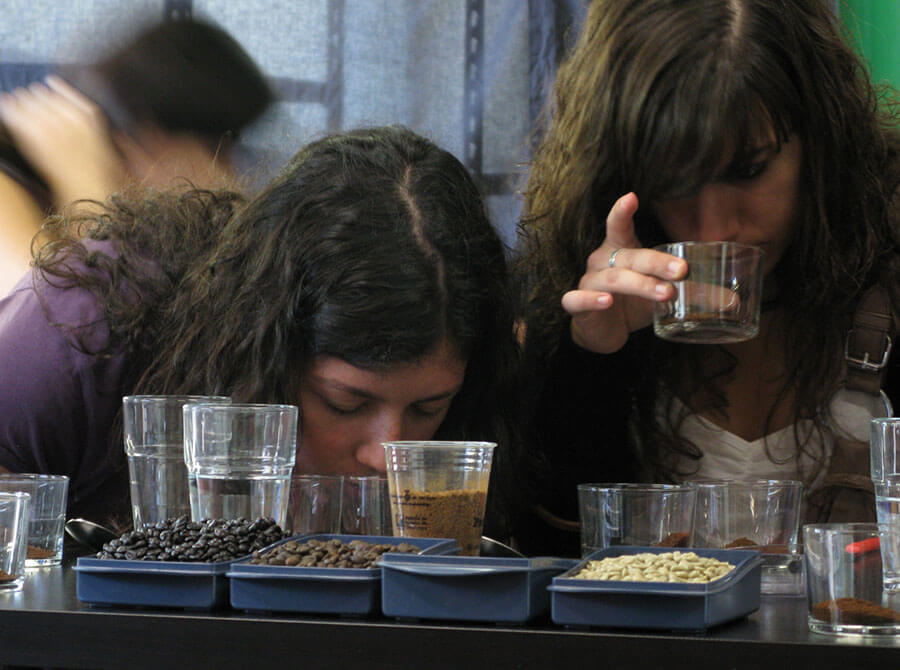
Catalonia (Mataró, Terrassa, Manresa, Sant Quirze del Vallés, El Prat, Molins de Rei, Calella, Igualada, Montornes, Sant Adriá, Cerdanyola del Vallés), Valencia (Sagunto).
Development education.
2008 - present
The main objective is to raise awareness of fair trade.
Tercer Món Mataró Foundation, Josep Maria Cunill Association, La Tenda de Tot el Mon.
City councils (Mataró, Terrassa, Manresa, Sant Quirze del Vallés, El Prat, Molins de Rei, Calella, Igualada, Montornes, Sant Adriá, Cerdanyola del Vallés).
Barcelona Provincial Council (2008-2012).
Café-Ciudad is a campaign aimed at citizens, associations, public entities and establishments in each city, with the objective of promoting awareness of responsible coffee consumption, knowing the origin and the conditions in which it has been produced.
The Café-Ciudad proposal will work in an environment of associative commitment to generate a link between coffee production, its origin and its consumption in the locality. In this way, citizens will learn directly about the better living conditions of the farmers who have grown it and the respect for the environment in its country of origin.
This reference proposal within the framework of Ethical Public Procurement and the first fair trade café of cities in Spain, presents citizens with the objectives of Agenda 21 decided at the United Nations Assembly in 1992, aspiring to put these objectives into practice at a local level, in order to give the possibility at an individual level to act responsibly in consumption.
–
FAIR TRADE WORKSHOPS
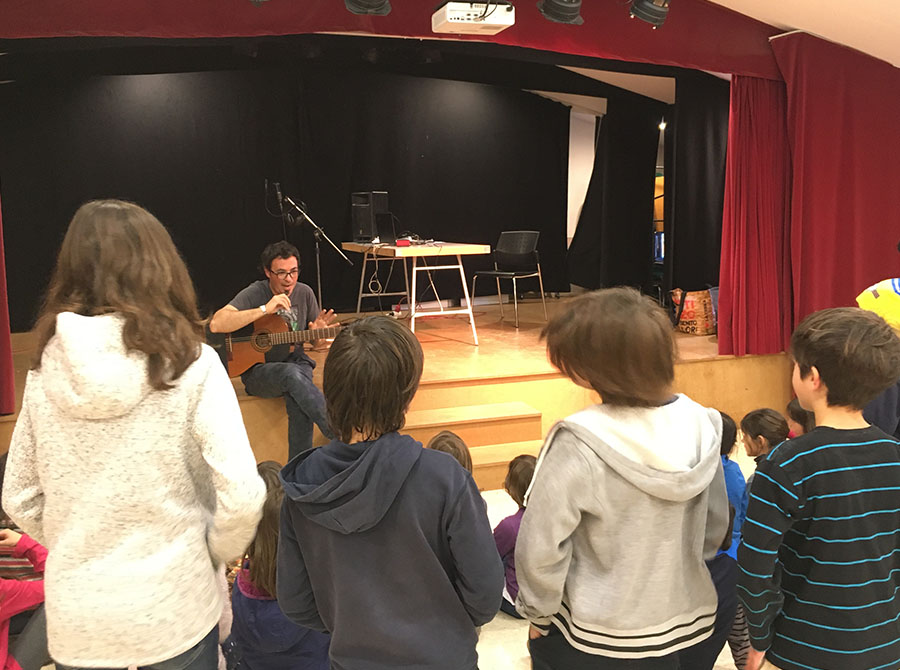
–
–
–
This activity consists of a musical workshop where, through songs from the album Karibu! - songs and dances for a fairer world, we will learn about the basic principles of Fair Trade and education for development, the importance of children's rights and the human values that underpin them. The workshop will be led by Carles Cuberes (www.carlescuberes.com), musician and entertainer, creator and composer of the songs.
The workshop is divided into three parts:
- First part: Introduction of the workshop, basic concepts of Fair Trade and presentation of the album of songs.
- Second part: Work, learning and rehearsal of the song (content, melody, structure...).
- Third part: Recording the song with the children. They will be given a CD with their recording.
Aimed at children in the second and third cycle of primary school. Workshop for a maximum of 30 children.
- To raise awareness of the basic principles of Fair Trade and other related concepts (children's rights, development cooperation, etc.).
- To encourage a critical look at the system of unfair trade relations present in our society.
- Present alternative initiatives and projects to this model.
- Motivate children to promote actions in favour of Fair Trade in their immediate environment (family, school, neighbourhood...).
- Work cooperatively, enjoying a common end result.
- Whiteboard or digital projector (optional).
- Space without a lot of sound interference for recording.
- Songbook in pdf (printing by the school or digital projection).
- CD with all the songs.
- CD with the song recorded by the participants (once the workshop is over).
2,5h or 5h.
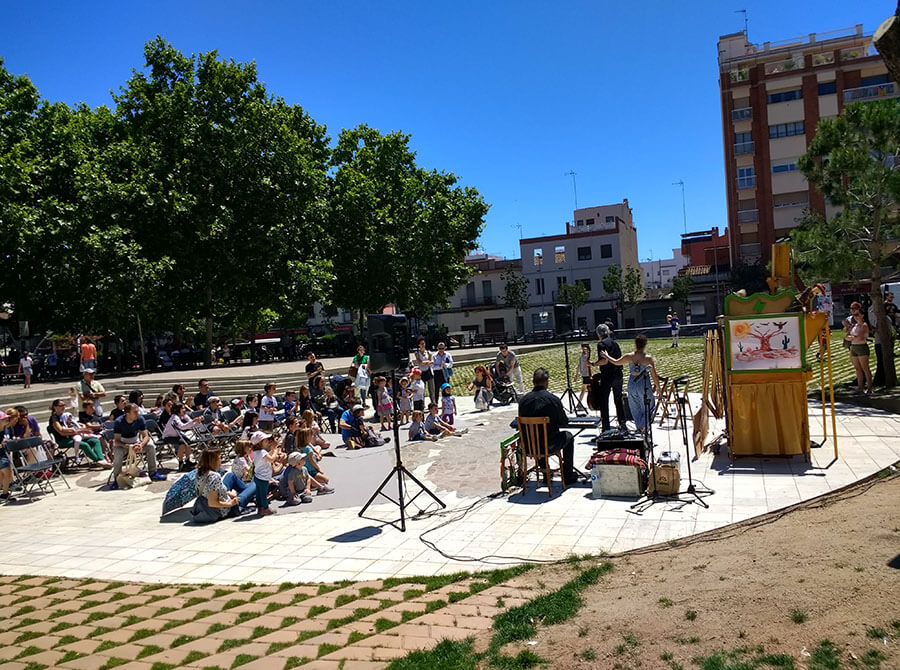
–
–
–
We invite you to open your senses and let yourself be carried away by one of the most pleasant, magical and enchanting smells in the world: the smell of coffee. And, through it, to discover stories, fables, tales and melodies that will accompany us on this journey that is sometimes sweet, but sometimes, unfortunately, bitter...
This is a family show of dramatised stories with a common element: coffee. This link, however, serves us to talk about things as important and close to children as courage, self-esteem and justice. We will also deal with the concept of Fair Trade and solidarity. All of this is accompanied by music, songs and participatory dynamics that facilitate active listening and make the show very enjoyable for all audiences.
Ideal for families aged three and over.
- To learn about the basic principles of Fair Trade and other related concepts (children's rights, development cooperation, etc.) through dramatised stories with songs and music.
- To encourage a critical look at the system of unfair trade relations present in our society.
- Stories: La llegenda de les cabres, Nala i el "què diràn?", La història de Don José, El gra de cafè.
- Songs: Amb gust de cafè, Maua Mazuri, Don José, Diem Adéu.
- Indifferent indoors or outdoors.
- Armchairs or chairs, optional. Possibility of sitting on the floor, with the option of blinds and/or cushions.
- Easy access with vehicle and parking.
- Stage space: 4×4 metres, preferably slightly elevated.
- Power socket: schuko plug, 200v and 3.3kw.
- Sound system: own. Up to 1000w.
- Lighting equipment: own (only if necessary).
55 min.
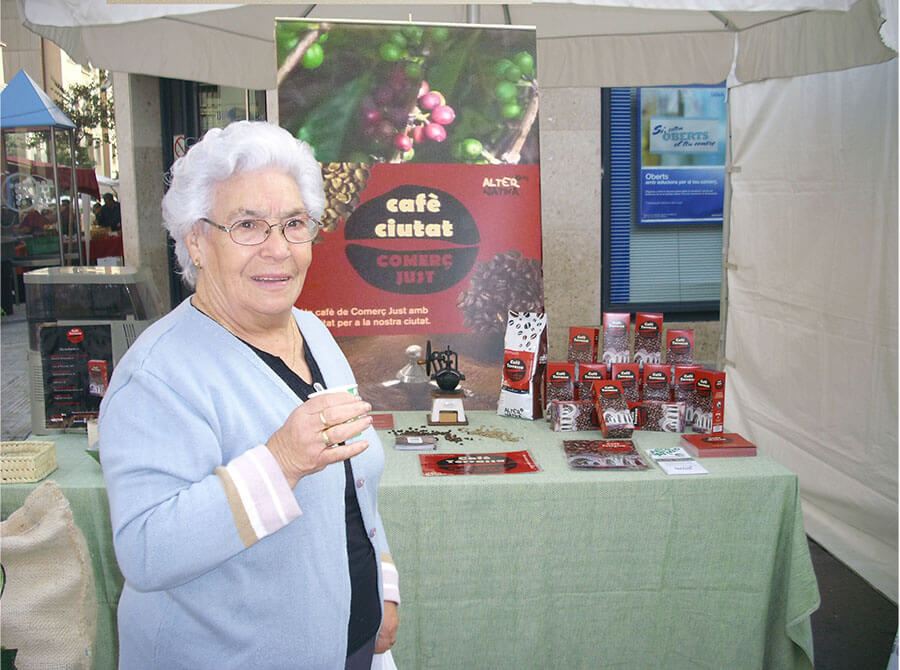
–
–
–
This activity consists of working on Fair Trade principles through chocolate. First, there is a participatory dynamic about cocoa to work on critical analysis and a small debate. This is done according to the age of the students. Afterwards, there is an explanation of the cocoa production process from the plant to the consumers, to finish by making Fair Trade chocolate sweets. They will be able to touch the cocoa fruit, the seeds and the cocoa powder, and they will end up becoming chocolatiers.
Aimed at primary school children. There is an adaptation for P5. Option 1h for schools.
- Know the differences between Fair Trade and non-Fair Trade.
- To develop students' critical capacity.
- Microwave.
- Tables and chairs.
All the material for the sweets, Fair Trade information leaflet.
1,5h.
–
–
–
The Fairtrade cocoa / coffee or sugar tasting aims to raise awareness of the differences between Fairtrade and traditional trade through an innovative and attractive activity.
The process of making Fairtrade cocoa / coffee / sugar from the tree to the final product is explained, giving information on the differences between Fairtrade and conventional cocoa / coffee / sugar at each step of the process. At each of these steps, graphic information as well as tactile, visual and tasting material is passed around.
We provide materials to give a dynamic and active touch to this activity. The experience we have of having carried out this action shows us great acceptance of this activity.
Activity for all ages, adapting it to the group. Option 1h for schools.
- To raise awareness of the principles of Fair Trade and the benefits it brings through a Fair Trade tasting.
- A dynamic and attractive way where you can learn in a practical way the differences between Fairtrade and Fairtrade.
international. - The aim is to raise awareness of the problems faced by producers in the international market and to show the benefits they receive from Fair Trade, as well as to encourage critical and responsible consumption.
Electrical connection, chairs (and tables if possible), projector and screen.
1,5h.
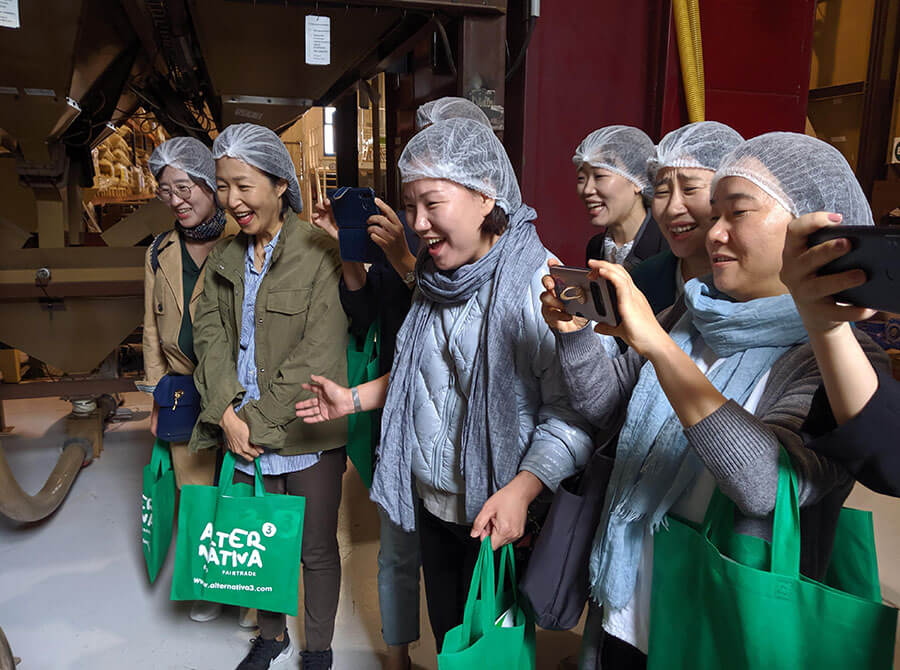
–
–
–
Alternativa3 is a Fair Trade cooperative that produces organic and Fair Trade products such as coffee, cocoa and sugar. The activity consists of visiting an organisation that works not only with economic criteria in mind, but also with social justice and responsibility towards people and the environment.
The visit begins with a first part where Fair Trade and the coffee process are explained with participatory methodologies according to the needs of each group. During the second part, a visit to the facilities and the coffee roastery takes place.
- All audiences from 8 years old. We have a special adaptation for groups following the CUEME programme.
- Groups of maximum 30 people.
- To raise awareness of Fair Trade as a real alternative to conventional trade.
- Encouraging committed attitudes to citizenship.
- To introduce the Fairtrade coffee process and its peculiarities in a dynamic way.
Alternative3 bag, Fair Trade information leaflets and gift.
2h.
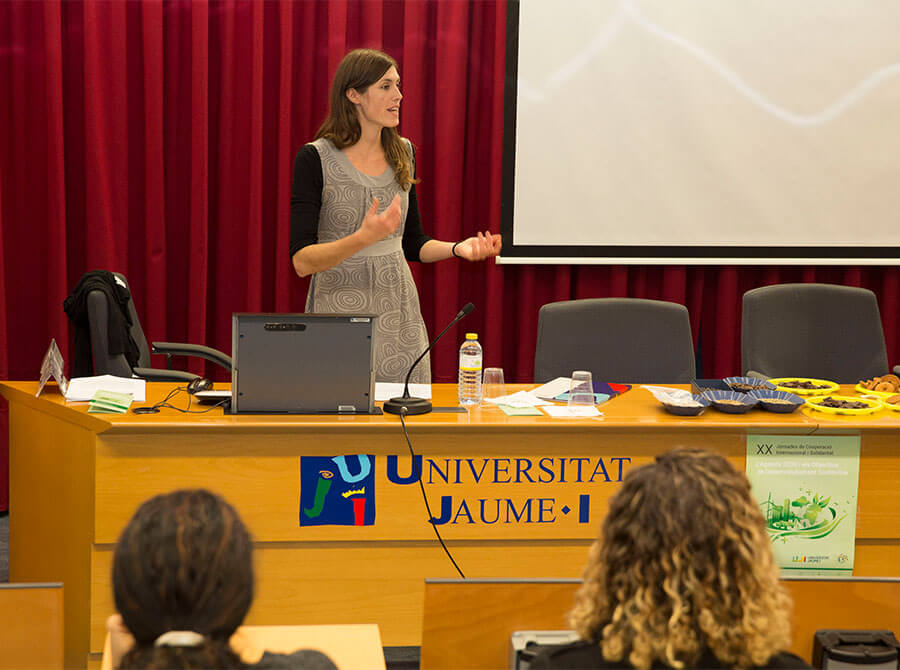
–
–
–
We offer workshops, seminars and conferences on Fair Trade. We have been involved in the world of Fair Trade since 1992, providing training on this subject to groups with very different profiles. We adapt the subject matter to the needs we are asked for. We use dynamic and participative methodologies.
All audiences from 12 years of age.
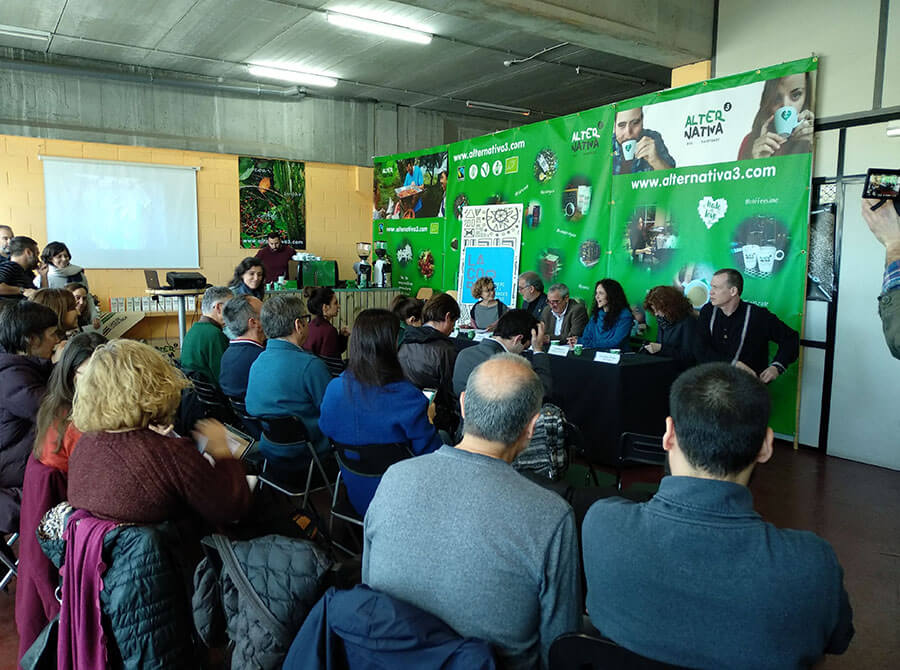
–
–
–
Exhibition on the Fairtrade Coffee process with all the actors involved. There are 10 easy-to-install roll-ups that give an overview of the process.
simple and quick overview of what Fair Trade is. Ideal for civic centres, schools or town councils. We offer activities to work on the exhibition with primary school children.
All audiences.
- Raise awareness of Fairtrade and Fairtrade coffee.
- To offer a visual and graphic possibility to make Fair Trade visible.
Space for 10 roll ups.
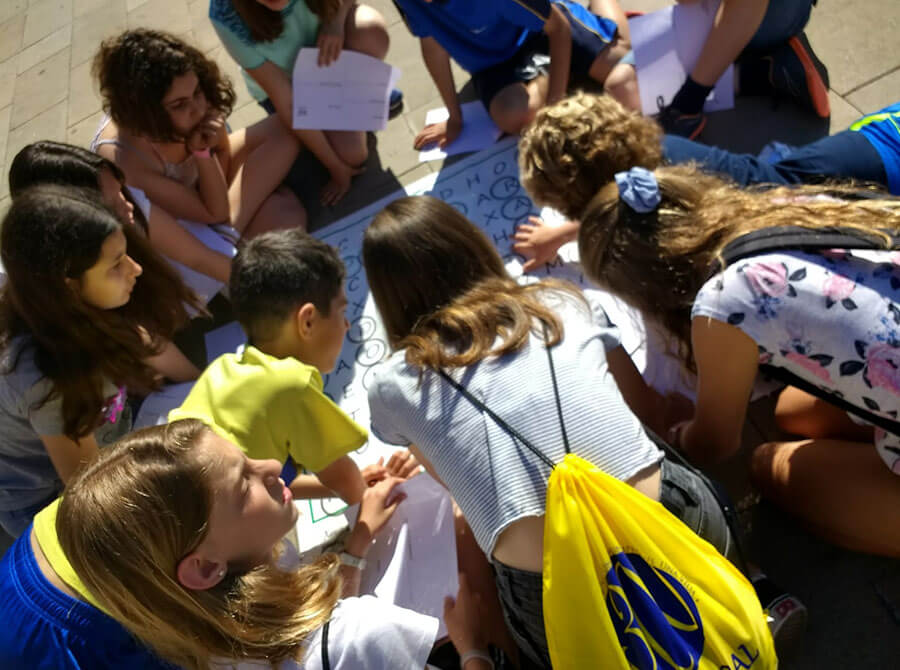
–
–
–
Dynamic games to work on and learn about Fair Trade through play, creating a reflection and debate from which they learnt by sharing their experiences. These are the Goose Game, the Differences game and a 1 metre x 1 metre alphabet soup.
All audiences, especially family audiences and children from 8 to 12 years old. Option 1 hour for schools.
- Learn the principles of Fair Trade.
- To understand the impact of Fair Trade and non-Fair Trade on the lives of producers.
- Reflect on the impact of our consumption.
Space for giant games of 1m x 1m.
1h.
